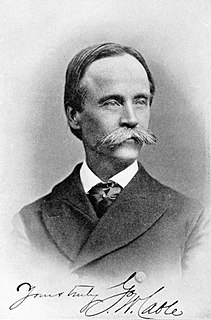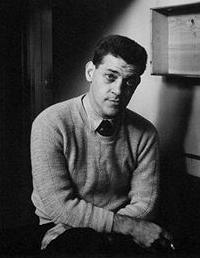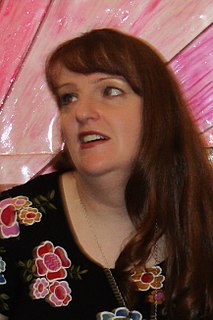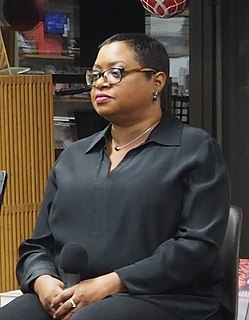A Quote by George Orwell
Last of all came the cat, who looked round, as usual, for the warmest place, and finally squeezed herself in between Boxer and Clover; there she purred contentedly throughout Major's speech without listening to a word of what he was saying.
Related Quotes
The appeal of the cat lies in the very fact that she has formed no close bond with [man], that she has the uncompromising independence of a tiger or a leopard while she is hunting in his stables and barns: that she still remains mysterious and remote when she is rubbing herself gently against the legs of her mistress or purring contentedly in front of the fire.
the place (Dogtown, in Gloucester, Massachusetts, fh) is forsaken and majestically lovely as if nature had at last formed one spot where she can live for herself alone.. (it) looked like a cross between Easter Island and Stonehenge - essentially druidic in it appearance, it gives the feeling that an ancient race might turn up at any moment and renew an ageless rite there.
I thought maybe she'd whisk us off by magic, or at least hail a taxi. Instead, Bast borrowed a silver Lexus convertible. "Oh, yes," she purred. "I like this one! Come along, children." "But this isn't yours," I pointed out. "My dear, I'm a cat. Everything I see is mine." She touched the ignition and the keyhole sparked. The engine began to purr. [No, Sadie. Not like a cat, like an engine.]
Later she sat on the ground in the forest between school and home, and spring was so bright and beautiful, the warm air touched her so tenderly, she could almost feel herself changing into a flower. Her light dress felt like petals. "I love everything," she heard herself say. "So do I," a voice answered. Pearl straightened up and looked around. No one was there.
I value in the cat the independent and almost ungrateful spirit which prevents her from attaching herself to any one, the indifference with which she passes from the salon to the housetop. When we caress her, she stretches herself and arches her back responsively; but this is because she feels an agreeable sensation, not because she takes a silly satisfaction, like the dog, in faithfully loving a thankless master. The cat lives alone, has no need of society, obeys only when she pleases, pretends to sleep that she may see more clearly, and scratches everything on which she can lay her paw.
Shaking herself, Petunia looked around. Several of her sisters had been talking to her, but she hadn't heard them. "And that answers our questions about why he gave himself up," Poppy was saying, a smile turning up one corner of her mouth as she looked at Petunia. "Now if everyone could please avoid saying his name [Oliver], so that Petunia doesn't drift off again...?
It is an important distinction to note that she looked not only as if she had taken good care of herself, but that she had good reason to have done so. (...) She looked to be in such total possession of her life that only the most confident men could continue to look at her if she looked back at them. Even in bus stations, she was a woman who was stared at only until she looked back.
When I looked at [Fannie Lou] Hamer and that speech it seemed to me that she had to be the bravest woman ever, to come before that body and to assert her rights, when she knew that she was going lose that battle. But she did it anyway, because she knew she was speaking not just for herself and for that day, but for me, and for all the other young women who were coming behind her. She didn't know our names, but she was working for us. I find that incredibly empowering.
In Washington and Moscow they are saying, 'Man has finally come of age; he doesn't need paternalistic help.' Which is another way of saying, 'We have abolished that help, and in its place we will rule,' offering no help at all: taking but not giving, ruling but not obeying, telling but not listening, taking life and not giving it. The slayers govern now, without interference; the dreams of mankind have become empty.







































